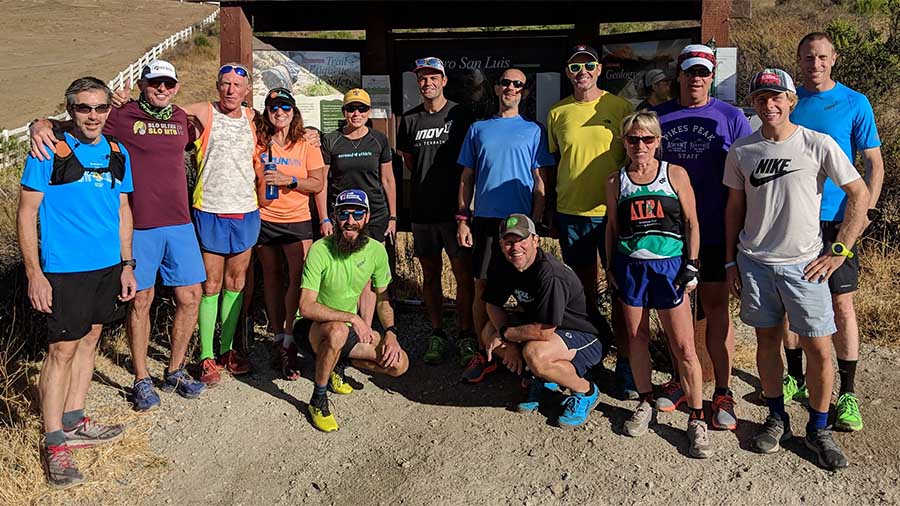The sixth webinar in a nine-webinar series produced by the U.S. Trail Running Conference and presented by the trail registration platform UltraSignup was hosted on June 17.
The session’s subject was race courses—course design and marking, land partners and permits, registration, limits, latest initiatives, safety and insurance. The session content was delivered by four race directors that represented their years of experience in producing trail races. Active at Altitude, organizers of the U.S. Trail Running Conference and the webinar series, reported nearly 90 race directors and event organizers registered for the webinar, representing more than 30 states, and Canada, Macedonia, Portugal, and Romania. The webinar series was held in partnership with the American Trail Running Association, and Trail Runner magazine.
The four panelists were Max King, 2011 World Mountain Running champion, race course designer and race director, Tiffany Hoover, assistant recreation superintendent, Parks and Recreation, Fayetteville, FL, Amy Rusiecki, race director, Vermont 100, and Mike Ortiz, director, Vail Recreation District.
King shared three critical factors for effective course design and marking including accuracy, consistency and visibility, and negative marking. He urged race directors to put themselves in the runner’s shoes when selecting a venue, course and markings. He also went on to divulge his top three lessons learned as a race director, “Don’t rely on volunteers (unless you have to), weather will get you every time and it’s important to have clear communication.” King finished his presentation by posing a question, “Is there a need for an industry-standard course marking system?”
Hoover addressed land partners and permits, namely seeking input from local trail maintenance volunteers and builders, the importance of coordinating trail workdays before and after races, and understanding the use patterns of the venue and who else might be impacted by the events on race day. She also revealed her top three lessons learned as a race director. “Even with a perfectly marked course, someone will get off course. It’s important to make the course experience fun with a focus on flow, and to help EMS crews be prepared if they need to assist participants anywhere on the course.”
Rusiecki’s focus was on registration issues and new initiatives. During her presentation, she shared her work to make all participants feel welcome at her races by creating divisions for athletes with disabilities and her successful introduction of a trans and non-binary athlete policy supported by her registration platform. Rusiecki shared her top three lessons learned as a race director. “The first is to expect the unexpected, secondly that communication is the key to success and finally the importance of surrounding yourself with good folks you can trust.”
Ortiz, as the final presenter, detailed safety concerns and insurance coverage. The impact of weather, participant injuries and medical conditions, safety protocols such as race sweeps, mileage markers, DNF protocols, and communications were all addressed. He also discussed insurance and liability coverage and how Vail Recreation District arranges coverage for crucial areas and scenarios. Finally, Ortiz shared his three key lessons learned as a race director, “It is imperative to build two-way relationships with your significant partners, communicate clearly with your racers to let them know what they can expect and to ask others if you can share their ideas and successes if you think that can benefit your participants and events.”
“The keystone of any event is safety,” said Nancy Hobbs, executive director, American Trail Running Association, “This includes everything from selecting a venue to staging a finish line. In this webinar, the panelists provided real-life experiences to educate new and veteran race directors with the nuances of course, permitting and insurance requirements. The information gleaned from this webinar will surely enhance the successful execution of events well into the future.”
Each webinar is presented by industry leaders in their respective fields and offers information that can boost a race director’s knowledge and afford insight into best practices to implement at their events. Every participant receives a best practices resource document after each webinar that details key actionable items, while there will be an opportunity to follow up on deliverables through an online forum, and in-person or remotely at the 2021 U.S. Trail Running Conference to be held October 27-30, in Fayetteville, AK.
The seventh webinar in the series is scheduled for July 22 and is focused on the latest thinking and best practices in response to COVID-19 in the trail racing scene. The expert panelists will be disclosed soon.
Photo courtesy U.S. Trail Running Conference















